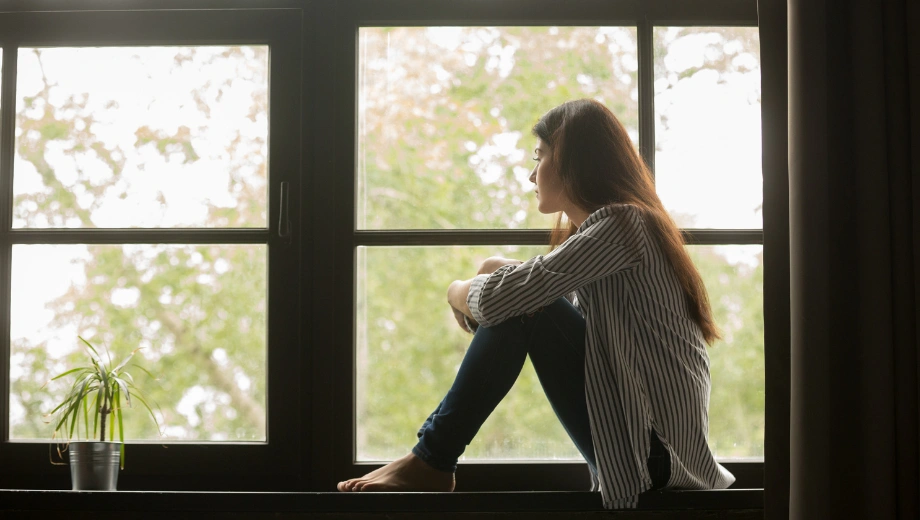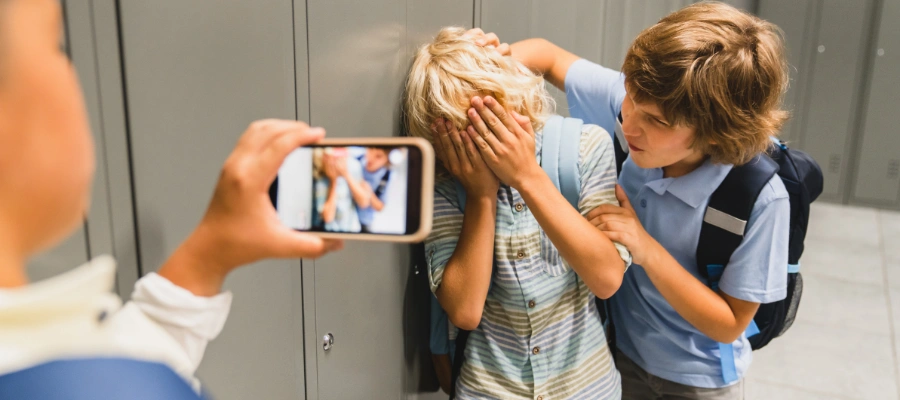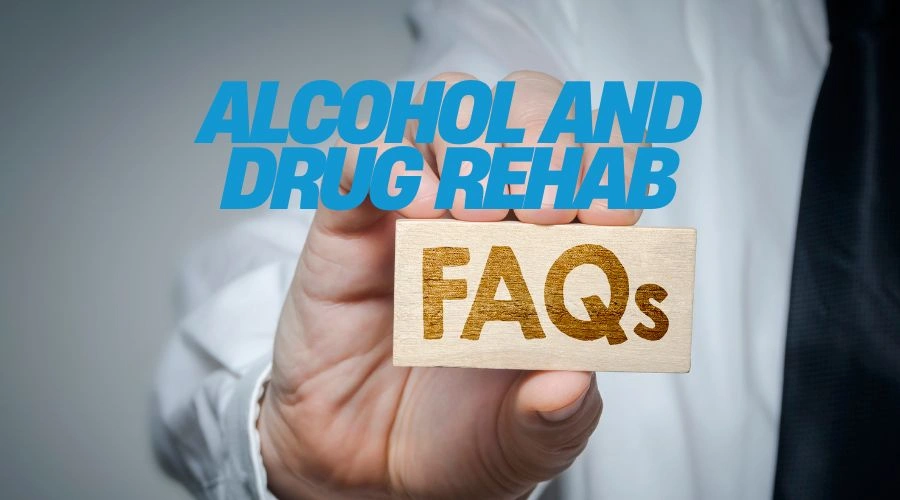Looking at Treating Childhood Trauma as an Adult
Sometimes, the past doesn’t remain in the past. Many people are surprised to learn that those who have survived adverse childhood experiences can face real physical and mental health consequences in adulthood as a result. However, these effects are not a life sentence.
It’s natural to be concerned that your past traumatic experiences hurt your present well-being, relationships, and career prospects. Maybe you feel lost when it comes to figuring out how to begin healing from childhood trauma.
Seeking trauma-informed care is the solution for how to treat childhood trauma in adults. Icarus Wellness and Recovery provides trauma-focused therapy for childhood trauma survivors at multiple care levels.
Get Confidential Trauma and PTSD Assessment
What Is Unresolved Trauma?
To grasp why childhood trauma may continue to affect adult survivors, it’s important to understand the concept of unresolved trauma. Perhaps you haven’t felt like yourself lately.
You might even wonder, “Am I still dealing with unresolved childhood trauma? Why now, if that’s the case?”
If that sounds familiar, it could be unresolved trauma. Many people who have experienced childhood trauma believe they’re on their own. So, they learn to cope by relying on their own resources. However, there’s a limit to what a single person can do.
Because of this, the profound after-effects of childhood trauma are frequently unresolved. Your emotions may have been disregarded as a child, leading to deeply held beliefs that affect your ability to process how you feel now and move forward.
How Childhood Trauma Affects Adult Life
Childhood trauma can have a significant impact on the challenges we face as adults.
Possible effects of childhood trauma include:
- Emotional dysregulation. You may experience intense emotions and have difficulty managing or coping with them.
- Self-destructive behaviors. These can include but aren’t limited to substance abuse, eating disorder behaviors, unsafe sexual practices, and self-harm.
- Mental health disorders. Adult depression, anxiety, borderline personality disorder, post-traumatic stress disorder, and other mental health issues (e.g., bipolar disorder) are prevalent among childhood trauma survivors.
- Relationship problems. Not limited to romantic partnerships, trauma affects your ability to connect with other people, specifically if it is left unresolved. Even work relationships can be affected.
- Physical health complications. For example, chronic pain and heart disease are more common in childhood trauma survivors.
- Low self-esteem. Trauma can cause negative thought patterns, including those that relate to how you perceive yourself. Low self-esteem can affect a person’s daily life and is closely linked to childhood trauma.
Although your traumatic events occurred in the past, they may continue to affect your life until you fully comprehend how they manifest in your current experiences, symptoms, and relationships. And, in turn, until you build the specific skills you need to navigate those effects.
The Best Ways to Heal Childhood Trauma In Adulthood
More than one type of therapy can be used to address post-traumatic stress disorder (PTSD), which affects some survivors of traumatic events. Here’s how adult survivors of childhood trauma can be helped by recommended treatments for PTSD.
We use a combination of these treatments and others to target unresolved childhood trauma. You or your loved one attending Icarus Wellness and Recovery will get a personalized treatment plan.
Cognitive Behavioral Therapy
Cognitive behavioral therapy (CBT) is an effective, research-backed, and popular treatment for trauma and a wide range of mental disorders. CBT helps trauma survivors identify maladaptive thoughts, replace them with more helpful ways of thinking, and modify their behavior.
Many trauma survivors feel helpless or “stuck.” For example, those with early trauma who have used unhealthy coping strategies, or who have had a specific stress response (e.g., angry outbursts), may feel that they are “stuck that way.”
This isn’t true. CBT helps you break through these beliefs with guidance from a mental health professional. This is just one example of how CBT might help you as a trauma survivor.
Cognitive Processing Therapy
Cognitive processing therapy (CPT) is derived from CBT. This type of therapy helps you create a new conceptualization of the traumatic event(s) you’ve faced. The goal is to reduce the ongoing negative effects trauma has on your current life.
CPT can be implemented in individual and group therapy sessions. Our center employs a combination of individual therapy and groups for clients. We use a range of therapy types, including CPT.
Prolonged Exposure Therapy
Like CPT, prolonged exposure therapy is derived from CBT. However, prolonged exposure (PE) is a specific type of trauma therapy that focuses on overcoming avoidance. This occurs through gradual exposure to triggers.
People with PTSD show symptoms of avoidance, such as avoiding reminders of a traumatic event. This can include physical reminders (e.g., people, places, or things) or internal reminders (e.g., thoughts or feelings).
Survivors of trauma often experience hypervigilance. Even if you logically understand that certain things do not put you in harm’s way, your body and mind might still react as though they do.
PE helps your body and mind learn that these things truly are not dangerous to you. In turn, you may experience a reduction in mental and physical symptoms that usually occur when you’re met with trauma triggers.
Eye Movement Desensitization and Reprocessing (EMDR)
Over the years, EMDR therapy has become increasingly popular for treating trauma. EMDR operates in eight distinct stages, helping clients reprocess traumatic or painful memories via bilateral stimulation (usually, in the form of eye movements).
This treatment also involves rating your levels of distress and watching it go down over time. Therapists using EMDR work carefully with clients and make sure that they have the coping skills necessary to address emotions and triggers that might arise during the process.
Narrative Exposure Therapy (NET)
Narrative exposure therapy, or NET, helps you create a life narrative that contextualizes traumatic memories. Specifically, in a way that helps you respect yourself and your rights as a human being.
Alternative and Complementary Therapies
Our programs use alternative and complementary therapies alongside other treatments. Examples of these approaches include:
- Art therapy.
- Yoga and meditation.
- Recreation.
- Breathwork.
Often, these treatments provide extra coping strategies and life skills that can help survivors build confidence. Some of them, like expressive arts, can also act as outlets.
Self Care Practices for Adult Survivors of Childhood Trauma
A major part of trauma treatment is learning self-care practices. We teach tools, such as the following, that’ll help you succeed long after the program(s) you participate in at our center are over.
Building Healthy Routines
Focus on your physical well-being. If you’re healthy, you’ll have a better time navigating stress. Create a schedule for yourself that allows you to get enough sleep, eat healthily, and exercise frequently. Our centers help clients build routines that support their mental and physical health.
Inpatient treatment is our most highly structured level of care. If you have severe symptoms, need to “re-set” your life, and want to establish healthy habits in a supportive environment, this program might be an ideal starting point.
After inpatient treatment at Icarus, people usually step down to an outpatient program. This lets you transfer healthy routines to your daily life outside of inpatient care with the help of treatment staff.
Abstain From Drugs and Alcohol
Though drugs and alcohol may help in the short term, they may ultimately exacerbate the trauma sufferer’s emotions of hopelessness, loneliness, and sadness. Since childhood trauma survivors are at an increased risk of substance abuse, this can be a necessary consideration.
If you experience co-occurring trauma and substance abuse, Icarus Wellness and Recovery can help. We offer dual-diagnosis treatment for those facing addiction and co-occurring mental health concerns.
Practice Radical Acceptance
To begin healing from trauma, you must first acknowledge it for what it is. Many people who experience traumatic events as children go through life trying to deny or rationalize what happened to them. Recognizing that a traumatic incident did occur and that you weren’t to blame is the first step toward recovery.
Remember that acceptance is not the same as approval. Instead, acceptance means that you acknowledge what has happened as a reality that you can’t change. Then, you can take your power back by focusing on what you can change.
Radical acceptance is often taught in therapies like dialectical behavior therapy (DBT). Alongside other treatments, Icarus Wellness and Recovery offers DBT for trauma.
Be Patient With Yourself
Take your time. Don’t rush the healing process. The effects of childhood trauma are long-lasting and difficult to overcome, including irrational feelings, a lack of faith in one’s own ability to recover from the trauma, defensive behaviors, and distorted perspectives. Overcoming these emotions will require significant time and effort.
Never discount your own efforts or your own successes. Take pride in your progress, no matter how small it may seem. It is the accumulation of these triumphs that will allow you to overcome the trauma you experienced in youth.
Built a Support System
Reach out to others and avoid being alone. Many people who have experienced traumatic events have the natural reaction to isolate themselves, but this is counterproductive. Relationships with others and reaching out for help are crucial to recovery.
Discuss your feelings with someone you trust, such as a family member, friend, or counselor, and think about getting involved with an organization that helps people who have overcome childhood trauma.
Why Is Childhood Trauma So Common? Understanding Adverse Childhood Events
Many children experience trauma in some form. However, there are numerous types of childhood trauma that you might not recognize as trauma at all. Examples of adverse childhood events include:
- Emotional abuse.
- Verbal abuse.
- Physical abuse.
- Sexual assault or abuse.
- Human trafficking.
- Neglect (including emotional or physical neglect).
- The death of a parent.
- A severe illness affecting the child or a close loved one.
- Bullying.
- Natural disasters.
Still, these are not the only possible causes of childhood trauma. At the end of the day, any traumatic event that affects someone as a minor is childhood trauma.
Get Accredited Treatment Programs at Icarus Wellness
Generational Childhood Trauma
If your parent(s) have trauma that was never addressed, it’s likely to be passed on to you in some way. Parents who have experienced trauma often act out their experiences. They may not be able to give you their undivided attention or could even begin to associate you with their abuser, albeit unintentionally.
Similarly, a kid might absorb their parent’s fear and become traumatized, continuously anxious, and live with the same types of concerns that their parents experienced without realizing it. A parent who is emotionally distant or nervous is likely a victim of trauma as well.
Sometimes, the effects of childhood trauma might manifest in adulthood because, despite your best efforts, a part of you will always be a vulnerable child. This part of you as a child still bears your trauma. This is part of why self-compassion and validation matter.
Affirming Mental Health Therapy for Childhood Trauma
When looking for a trauma therapist, it’s crucial to find trauma-informed care. A therapist with knowledge of the long-term effects of childhood trauma will have a deeper understanding of:
- Why you might use unhealthy coping mechanisms.
- Why trauma survivors may find it difficult to trust professionals at first.
- What the healing process and treatment progress can look like.
- Mental health conditions associated with early life trauma.
- How to build an affirming, supportive environment.
When you talk about trauma, you deserve a reaction that’s attentive, compassionate, and sympathetic. Looking for a treatment center with trauma-informed specialists, like Icarus Wellness and Recovery, can help.
Choose Icarus Wellness to Heal Early Childhood Trauma
Icarus Wellness and Recovery is a highly respected addiction and mental health treatment center. Our trauma-informed mental health professionals work with childhood trauma survivors daily, helping people like you or your loved one rebuild after adverse childhood events.
We know firsthand that even survivors of severe trauma can heal. No matter what, you aren’t confined to past trauma or its effects.
Call our admissions line confidentially today to learn more about our treatment programs for adult survivors of childhood trauma. We’re here to help you make strides toward healing.
Up To 100% of Rehab Costs Covered By Insurance
FAQs About How to Treat Childhood Trauma in Adults
What is childhood trauma in adults called?
Childhood trauma and adverse childhood experiences are two ways to refer to traumatic events occurring in childhood. People of any age can use these terms.
What are the symptoms of PTSD in adults from childhood trauma?
Adult survivors of childhood trauma can experience any of the symptoms listed in the diagnostic criteria for PTSD. However, it’s important to note that complex PTSD (C-PTSD) is common in childhood trauma survivors.
Talking about this matters because C-PTSD comes with additional symptoms. For example, chronic and extensive issues with emotion regulation, sense of self, and interpersonal relationships.
Can medication help childhood trauma survivors?
Sometimes, medication is helpful for trauma survivors. Specifically, medication can be paired with therapy to treat mental disorders linked to childhood trauma in some cases.
References
- Understanding child trauma – what is childhood trauma?. SAMHSA. (n.d.-d).
- Peterson, S. (2018, June 11). Effects. The National Child Traumatic Stress Network.
- Author links open overlay panelCheyenne Downey a, a, b, & AbstractBackgroundThis article looks at the impact of childhood trauma on children’s wellbeing and adult behavior from the perspective of 9 clinical professionals in Ireland. It exhibits how physical. (2021, June 30). The impact of childhood trauma on children’s wellbeing and adult behavior. European Journal of Trauma & Dissociation.
- American Psychological Association. (n.d.-a). American Psychological Association.
- Centers for Disease Control and Prevention. (n.d.-a). About adverse childhood experiences. Centers for Disease Control and Prevention.
- Complex PTSD. Cleveland Clinic. (2025a, July 15).









